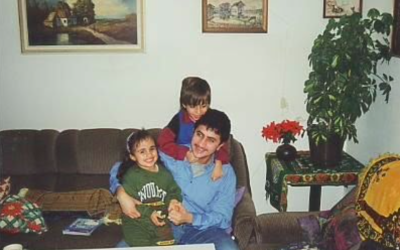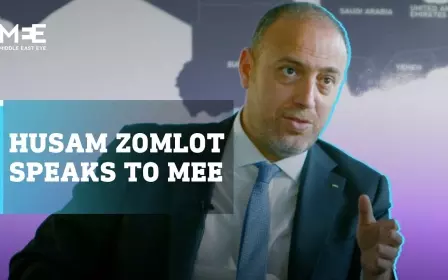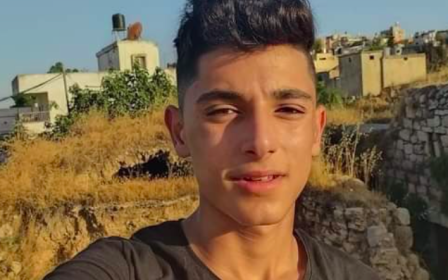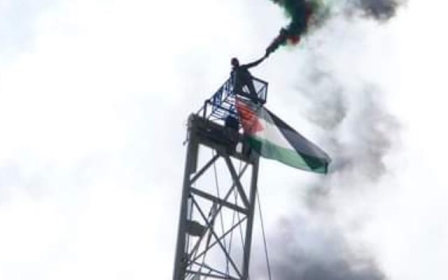Israeli officer charged in killing of autistic Palestinian Iyad al-Halak

Israeli prosecutors have charged a border police officer with "reckless manslaughter" in the deadly shooting of an unarmed autistic Palestinian man that ignited nationwide protests against police brutality.
Iyad al-Halak, 32, was killed by the police officer on 30 May 2020 while on his way to a special needs school in occupied East Jerusalem's Old City.
The officer, who remains unidentified in the indictment submitted to the Jerusalem District Court on Thursday, could face up to 12 years in prison if convicted.

Halak's family had previously criticised the Israeli authorities' investigation into his killing, and called for much tougher charges.
Prosecutors from the police internal investigations department said in a statement that the decision to charge the officer "was made after deep examination of the evidence, examination of all the circumstances of the incident and the claims heard during the officer's hearing."
They said Halak's death was a "serious and unfortunate incident" and the officer shot him "while he took an unreasonable risk that he would cause his death."
According to accounts at the time, Halak was shot after running away and failing to heed calls to stop. Two members of Israel's border police then chased him into a waste storage area and shot him as he cowered next to a bin.
'Destroying cameras'
In August, Halak's family accused police of deliberately "destroying cameras" that included evidence of the murder, as the investigation into his killing has been hampered by the lack of video evidence, despite reports that the area where he was killed had at least 10 CCTV cameras.
The justice ministry said in a statement in October, when prosecutors recommended charges against the officer, that the wounded Halak pointed to a woman he knew and muttered something. The officer then turned to the woman and asked her in Arabic, "Where is the gun?"
She replied, "What gun?" At that point, the officer under investigation fired again at Halak.
The woman mentioned in the statement appears to be Halak's teacher, who was with him that morning. At the time of the shooting, she told an Israeli TV station she repeatedly called out to police that he was "disabled".
In the charges filed on Thursday, prosecutors described how the accused shot Halak in the stomach when he had his back against a wall in a corner, then shot him a second time in the chest while the Halak was sprawled on the ground wounded.
In cases of attacks against Israeli security forces, police often quickly release security-camera footage to the public. Palestinians and human rights groups say Israel has a poor record of prosecuting cases of police violence against Palestinians.
Ayman Odeh, head of the Joint List of Arab parties in Israel’s parliament, responded on Twitter, calling the indictment for reckless manslaughter "an infuriating and denigrating charge".
'Palestinian lives matter'
The fatal shooting became a rallying cry against police brutality in both Palestine and Israel, sparking numerous demonstrations despite coronavirus lockdowns.
Halak's shooting also garnered international solidarity, as it coincided with protests following the US police killing of George Floyd.
Palestinians have long accused Israel of carrying out superficial investigations into crimes committed by Israeli forces or settlers against Palestinians. Israelis are rarely tried for killing Palestinians, and if found guilty, typically receive lenient sentences.
Earlier on Thursday, the Palestinian health ministry said a Palestinian teenager who was shot by Israeli troops in the occupied West Bank a day earlier had died of his injuries.
Ahmad Shamsa, 15, died of a gunshot wound sustained on Wednesday. He was the fourth Palestinian killed in protests near the settlement outpost of Evyatar in the past month, as demonstrators have thrown stones at Israeli troops, who responded by firing live ammunition and tear gas.
Middle East Eye delivers independent and unrivalled coverage and analysis of the Middle East, North Africa and beyond. To learn more about republishing this content and the associated fees, please fill out this form. More about MEE can be found here.




